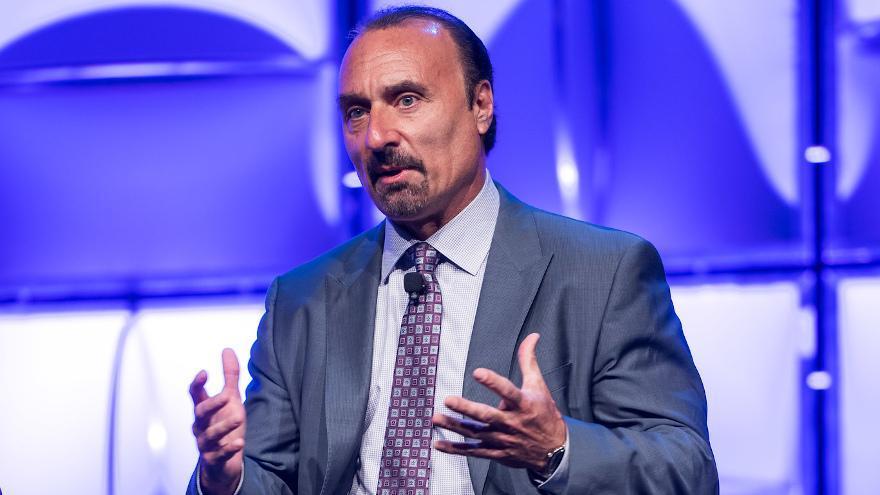Kontos talks used-car prices, slow sales & consumer confidence in first commentary since completion of ADESA sale

File photo of ADESA chief economist Tom Kontos during an NIADA conference. Photo courtesy of NIADA.
By subscribing, you agree to receive communications from Auto Remarketing and our partners in accordance with our Privacy Policy. We may share your information with select partners and sponsors who may contact you about their products and services. You may unsubscribe at any time.
He’s back, folks.
Tom Kontos has released his first industry commentary since the closing of KAR Global’s sale of its U.S. ADESA auction business to Carvana.
The longtime auto analyst, who is now the chief economist at ADESA Auctions, shared his thoughts on June’s wholesale vehicle price movements, the driver of slow used-car sales and more in this newly revamped Kontos Kommentary, released Tuesday.
Following a roundup of wholesale vehicle values — which showed a 2.2% month-over-month decline in June, despite remaining 16.1% higher than year-ago figures and 48.2% above pre-pandemic numbers — and a softening retail market, Kontos introduced a new section to his report called “#Trendspotter,” where he offers a more personal take on the used-car market.
“The softening market trends described in the previous section are not surprising in light of greater consumer awareness of the high price of vehicles these days,” Kontos said, referring to slower used retail sales.
“For many months I have been stressing that consumers had become increasingly aware of high vehicle prices for new and used vehicles and were starting to push back by voting with their wallets via abstaining from buying,” he said. “I felt that supply constraints were becoming less important than declines in demand in explaining softening new and used vehicle sales.”
Subscribe to Auto Remarketing to stay informed and stay ahead.
By subscribing, you agree to receive communications from Auto Remarketing and our partners in accordance with our Privacy Policy. We may share your information with select partners and sponsors who may contact you about their products and services. You may unsubscribe at any time.
Kontos’ report provides a detailed summary of first-half retail used-car sales (including certified pre-owned) based on ADESA’s analysis of NADA and Motor Intelligence data.
In the first of 2022, there were 13.52 million total used-car retail sales, down 11.5 year-over-year and up 5% from 2020. However, that figure is down 10.6% from pre-pandemic figures in 2019.
Franchised dealers saw first half sales fall 12.4% year-over-year, while beating 2020 figures by 3.4% and trailing 2019 numbers by 13.8%.
Independent dealers were down 10.6% from last year, up 6.6% from 202 and down 7.2% from 2019.
“As these figures show, the retail used vehicle market has seen double-digit percentage declines this year compared to last year and pre-pandemic levels,” Kontos said.
Going back to the #Trendspotter section, Kontos analyzed data from the University of Michigan Consumer Sentiment Index. What he found and illustrated through a graph was that 58% of respondents in the UM survey said it was a bad time to buy a vehicle because of high prices.
That marked an all-time high, he said.
“Add to this the prevailing inflationary environment, and it’s no wonder that new and used vehicle sales are at depressed levels,” Kontos said.


